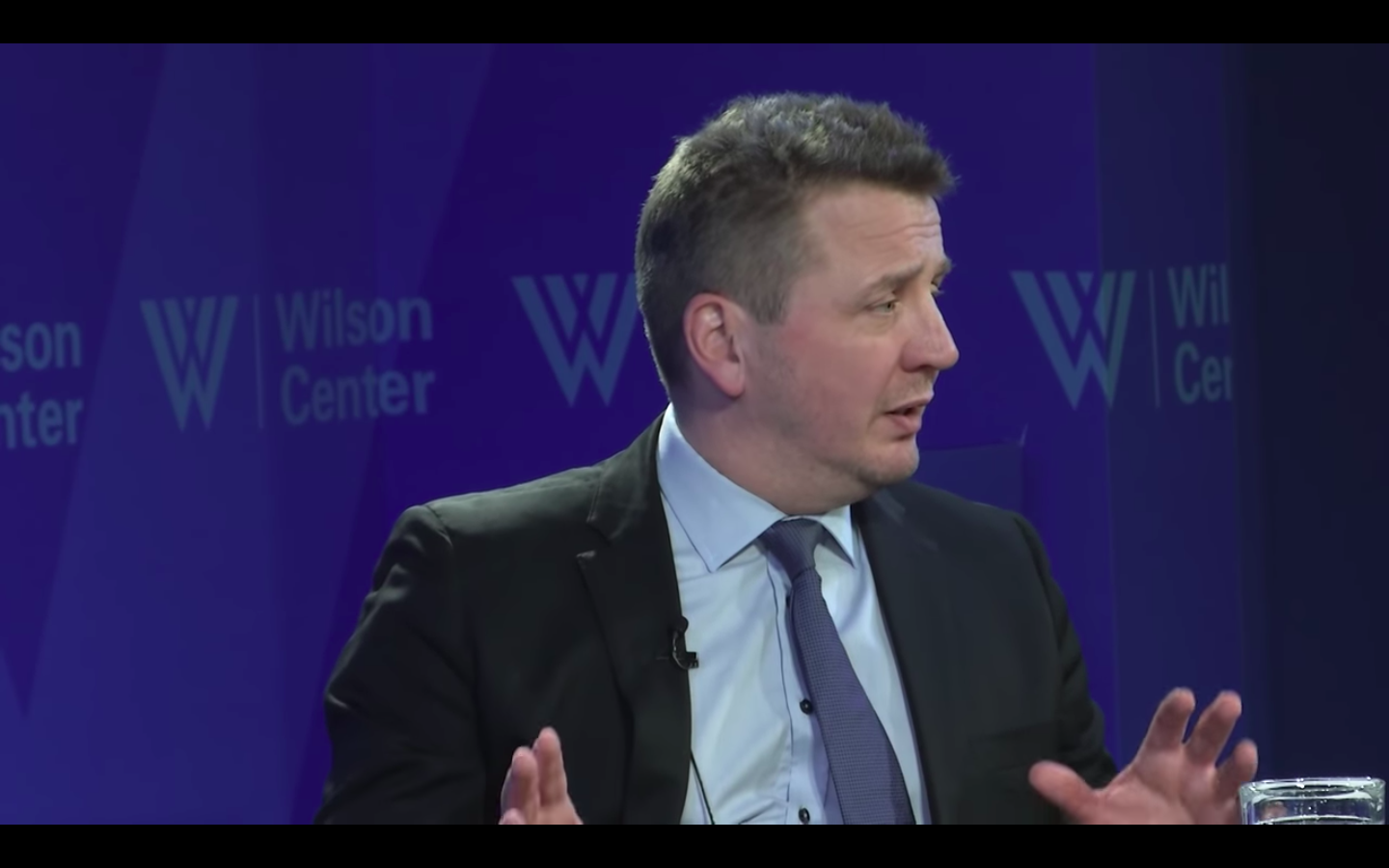Iceland prioritizes continuity and a smooth transition to Russia in its chairmanship of the Arctic Council
Iceland will focus on marine resources, green energy, support for Arctic communities, and a stronger Arctic Council.

Last month, Iceland assumed chairmanship of the Arctic Council. But its leaders are already looking to the future, when Russia will take over the chairmanship, and emphasizing continuity over any disruptive changes.
“It’s probably the worst time for anyone to take over the chairmanship of the Arctic Council,” Guðlaugur Þór Þórðarson, Iceland’s Minister for Foreign Affairs, said at a recent event in Washington, D.C. “Seriously, it’s very challenging times.”
The most important part of Iceland’s chairmanship, Þórðarson said, will be maintaining rules-based international law and keeping the Arctic a peaceful, non-militarized area.
“We will do our utmost — it’s a priority in our foreign policy,” he said, “to keep it as it is and move forward.”
Iceland, the only founding member of NATO without national forces, wants to avoid military buildup in the region. In its chairmanship, Þórðarson said, it’s very important to keep national security issues off the Arctic Council’s agenda.
While he acknowledged changes to the environment, economy and geopolitics of the region, Þórðarson said that “peaceful cooperation in the Arctic should continue to be at the forefront as we better realize the ever-growing opportunities that lie in the region.”
Even before U.S. Secretary of State Mike Pompeo highlighted national security issues and derailed agreement on a joint minister’s declaration in Rovaniemi, Iceland was not planning any drastic changes in its chairmanship, Þórðarson said.
“We must all maintain a cool head and keep our feet firmly on the ground,” he said.
Þórðarson acknowledged increased interest from non-Arctic states, from members of the European Union to nations such as China, India, Japan, South Korea and Singapore, which all became Arctic Council observers in 2013. However, he said, many of the Arctic investments from these countries — particularly China — have been “more talked about than practiced.” He pointed out that in Iceland, more than one-third of foreign investments come from the United States.
For the next two years, “sustainable development will be the guiding light in our chairmanship,” Þórðarson said, with a focus on marine resources and green energy solutions as well as supporting Arctic communities and strengthening the Arctic Council.
He spoke to the role of climate change in fluctuating fish populations, sea ice, and ocean acidification, and he said that reducing emissions is key. He called for a focus on renewable energy sources, alternative fuels for ships, and energy independence, especially in small communities.
“We can expect more drastic changes to the Arctic environment in the next two decades than in the past hundred years,” Þórðarson said. Yet a race to capitalize on newly accessible and available natural resources must be avoided, he said, because “it could threaten stability and peace in the Arctic and the North Atlantic.”
In addition, he spoke to the importance of supporting Arctic communities, from stimulating the economy with tourism and shipping to improving communications.
Þórðarson is already planning for the smooth transition to Russia’s chairmanship in two years. He met with Russian Foreign Minister Sergei Lavrov in Finland and made plans to visit Moscow soon.
“Continuity is very extremely important,” he said.
The work of the Arctic Council over the past two decades needs continue with as little disruption as possible, he said, and the constructive dialogue between Nordic countries, the United States, Canada and Russia is “highly important.”
Ragnhild Groenning, a senior fellow at the Arctic Institute and research adviser at ARENA Centre for European Studies at the University of Oslo, pointed out that that Arctic Council has encountered challenges several times before.
“Dealing with this could be quite challenging for Iceland, but Icelandic leaders have already expressed that there should not be drawn too many conclusions from what happened in Rovaniemi,” she wrote in an email. It will be particularly interesting to see how the Arctic Council chooses to deal with observer states, like China, especially in light of harsh U.S. statements during the Arctic Council ministerial and in its newly updated Arctic strategies, she added.
One of the goals of the Finnish chairmanship was to issue a new strategic plan for the Arctic — a plan that was upended by the turmoil in Rovaniemi. Groenning called it an “ambitious endeavor” that could build upon the Ottawa declaration. But such a plan would likely include environmental protection and climate change, she said, “and I find it hard to believe that the U.S. would get on board with something like that at the moment.”
At the event in D.C., John Farrell, executive director of the U.S. Arctic Research Commission, asked if the Arctic Council would issue a strategic plan under Iceland’s leadership. But Þórðarson punted.
“Of course, that would be an extremely important and good thing to do,” he said. But Iceland is still exploring its options, he said. “I think it’s very important that we’re just realistic in this situation which we are in now,” Þórðarson said.
He praised binding treaties in the Arctic, from agreements on search and rescue to emergency preparedness and response to cooperation in Arctic science. “I have a dream that we have more of those,” Þórðarson said.
“How far we can go — both the forum of the Arctic Council and also making other treaties or strategic plans — we have to see,” he said. “But we will do our utmost to make it happen.”